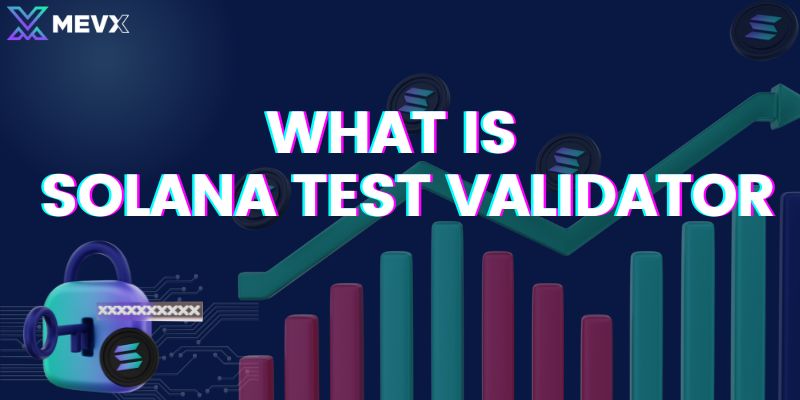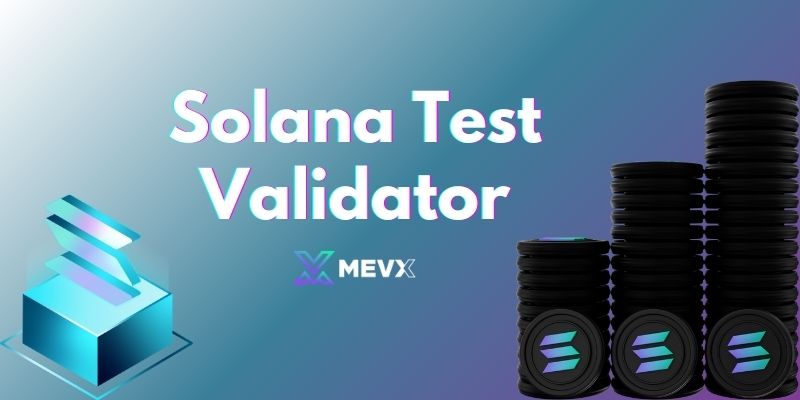What is Solana Test Validator? A Solana Test Validator is a crucial tool for developers to test and optimize their code in a safe, controlled environment. It allows for simulation of real-world scenarios, helping identify issues and improve security and performance before deploying on the live Solana network.
What is Solana Test Validator?
A Solana Test Validator is a specialized validator node used for testing purposes within a controlled and isolated environment. Unlike the full validators on the main Solana network, which verify and confirm transactions on the live blockchain, a test validator operates in a testnet environment. This allows developers to deploy their applications, smart contracts, or new features and experiment without the risk of affecting real users or the main Solana network.
Essentially, Solana Test Validators serve as a sandbox for developers to test their code under simulated conditions, ensuring everything works correctly before it goes live. This setup offers a safe space for debugging, performance optimization, and real-world scenario simulation, reducing the risk of errors once the code is deployed to the production network.

How do Solana Test Validators function?
Solana Test Validators mimic the functionality of full validators but operate within a separate network designed specifically for testing. Developers can set up and configure these test validators, run test transactions, deploy smart contracts, and monitor the behavior of their applications in a low-risk environment. The goal is to test and verify the functionality of the code before it interacts with the main network and real transactions.
The test validator setup allows for testing various aspects of blockchain functionality, including:
- Smart Contract Deployment: Developers can deploy smart contracts and test their functionality to ensure they execute correctly before deploying to the mainnet.
- Transaction Validation: The test validator can validate and simulate transactions to ensure the underlying code operates as expected under various network conditions.
- Performance and Load Testing: Developers can simulate network congestion or high traffic to test how their applications handle different loads, helping to improve scalability and efficiency.
The Role of Solana Test Validator in Code Optimization
Testing code in a production environment can be risky. If errors occur, it could lead to loss of funds, downtime, or other negative consequences. This is where the Solana Test Validator becomes indispensable. Here’s how it contributes to optimizing the code:
- Error Detection Before Deployment
Solana Test Validators provide a controlled environment where developers can catch bugs and errors in their code before it is deployed to the main Solana network. By running tests on the validator, developers can identify potential issues in their smart contracts, transaction logic, or other code components. These errors can be rectified in the test environment, ensuring that the final product is robust and reliable.
- Improving Code Efficiency
One of the key aspects of optimization is ensuring that the code runs efficiently. By testing in a Solana Test Validator, developers can monitor the performance of their applications under various conditions. This allows them to fine-tune their code to reduce gas fees, improve transaction speeds, and optimize resource consumption.
The test validator can simulate various network conditions, enabling developers to test how their application behaves when the network is congested, or when high transaction volumes are involved. This real-time testing helps improve the scalability and overall efficiency of applications.
- Ensuring Security and Stability
Security and stability are critical factors when developing for a blockchain like Solana. A Solana Test Validator helps identify potential vulnerabilities in the code before it is deployed on the mainnet. For example, if there are security flaws in a smart contract or loopholes that could be exploited, developers can address them before it’s too late.
Using the test validator also helps simulate edge cases, like network downtime or unexpected errors, to ensure the application can handle such issues smoothly once deployed to the main network.
- Simulating Real-World Scenarios
In the real world, applications on the Solana blockchain need to handle various scenarios, such as sudden spikes in traffic, complex transactions, or potential network failures. A Solana Test Validator can simulate these situations, allowing developers to test how their applications would react under pressure. This simulation ensures that the application will function as expected, even in unexpected or high-stress situations.
- Cost-Efficiency in Development
Testing and deploying code on the main Solana network can incur transaction fees, which can add up quickly, especially when working on large-scale projects. By using a Solana Test Validator, developers can avoid these fees. Since the test validator operates on a separate testnet, developers can conduct tests without incurring real-world costs, making the development process more cost-effective.

Why Solana Test Validator is Essential for Blockchain Development
The Solana Test Validator is crucial for several reasons:
- Pre-Deployment Testing: It allows developers to ensure their code is stable, efficient, and secure before deployment on the mainnet.
- Risk Mitigation: By testing in a safe, isolated environment, developers can reduce the risk of downtime, bugs, and errors affecting real users.
- Optimized Performance: It helps improve the scalability, transaction speed, and resource efficiency of applications, leading to better performance on the Solana blockchain.
- Security Assurance: Testing in a test validator ensures that vulnerabilities or security loopholes are identified and addressed before they can affect users and assets.
How to Set Up a Solana Test Validator
Setting up a Solana Test Validator is relatively straightforward. To start, developers will need to install the Solana Command-Line Interface (CLI) tool and configure the necessary environment settings. Once the setup is complete, the test validator can be initiated, and developers can begin deploying their test applications.
Once the validator is running, developers can deploy smart contracts, simulate transactions, and run tests under various conditions. The test validator will monitor the network’s performance, logging any issues or discrepancies that need to be addressed.
The Solana Test Validator is an indispensable tool for developers working within the Solana ecosystem. By providing a secure, isolated testing environment, it enables developers to optimize their code, detect errors, and ensure the stability and security of their applications before they go live. Using a test validator not only enhances the development process but also ensures that the applications deployed on the Solana blockchain function optimally, providing users with a smooth and efficient experience.
If you’re a developer looking to optimize your Solana-based applications, using the Solana Test Validator is a critical step in ensuring your code is ready for the mainnet. Start testing today to ensure your Solana projects are secure, efficient, and high-performing.
Want to learn more? Visit MevXTrader for all the latest updates and insights!
